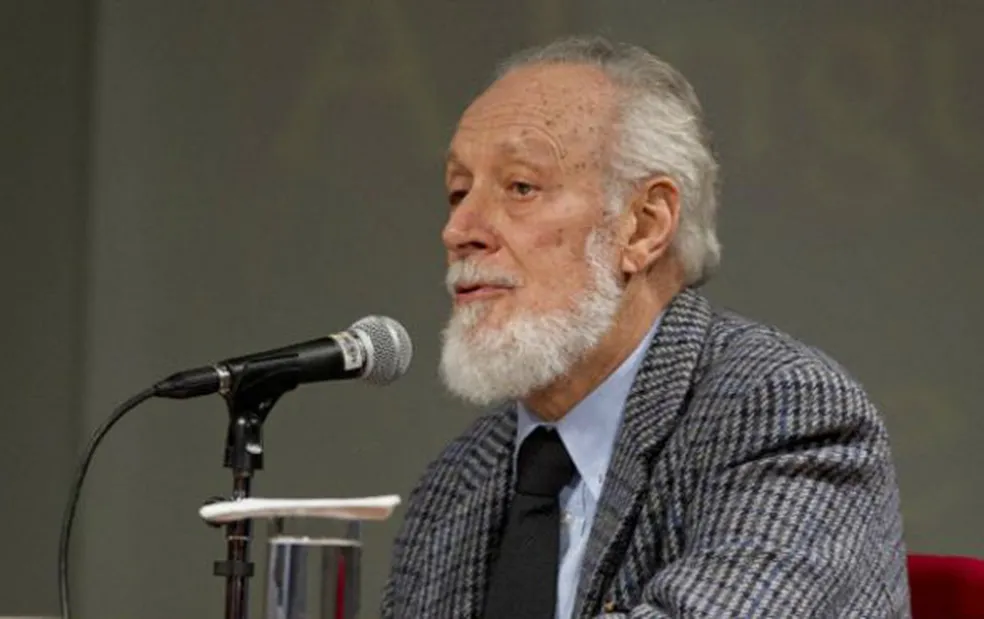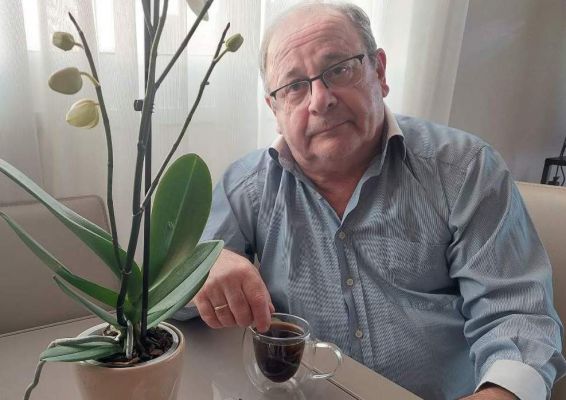The academic, diplomat, poet, essayist, memoirist and historian Alberto Costa e Silva died in the early hours of this Sunday (26), at home, of natural causes, at the age of 92. According to the Brazilian Academy of Letters (ABL), there will be no wake, and the body will be cremated tomorrow in a ceremony restricted to the family.
A specialist in the culture and history of Africa, Costa e Silva was Brazil’s ambassador to Nigeria and Benin, and is considered one of the most important Brazilian intellectuals. “His work is fundamental to the development of studies and teaching of the history of the African continent. He wrote more than 40 books, including poetry, essays, history, children’s books, memoirs, anthologies, versions and adaptations,” says ABL in a note about the academic’s death.
Alberto Costa e Silva was president of the Academy in the 2002-2003 biennium and held the positions of general secretary in 2001, first secretary in 2008-2009 and director of Libraries in 2010-15. He was also a corresponding member of the Lisbon Academy of Sciences and the Portuguese Academy of History. The diploma at the Rio Branco Institute took place in 1957.
The academic was born on May 12, 1931, in São Paulo, and completed his primary studies and secondary education in Fortaleza. In 1943, he moved to Rio de Janeiro.
In his inauguration speech at ABL, he highlighted his Brazilianness. “Carlos Chagas Filho wanted this chair to be a ‘captive chair’ from Rio. It won’t disappoint you at all that I’m here. My father was from Amarante, Piauí, with a mother from Maranhão, and studied in Recife; my mother was from Camocim, Ceará, raised in Manaus; I had a brother from Rio and two from Minas Gerais, one of them educated in São Luís do Maranhão; of my sisters, one was born in Amazonas and the other in Rio; I stopped being a gaucho for three months and was born in São Paulo. If I consider myself from Piauí at heart, anchored by my childhood in Fortaleza, I have just outlined the personal and family profile of a true citizen of Rio de Janeiro, whose old streets I have walked more than once in the company of one of the most fraternal of my friends , Herberto Sales, and one of his most fraternal friends, Marques Rebelo.”
Costa e Silva’s interest in the history of Africa was sparked by the books Os Africanos no Brasil, by Nina Rodrigues, and Casa Grande e Senzala, by Gilberto Freyre. At the beginning of his diplomatic career, he made his first trip to Africa, as part of the delegation of the then Minister of Foreign Affairs, Negrão de Lima, Brazil’s representative at Nigeria’s independence ceremonies in 1960. “Since then, his interest in the continent, known by those who lived with him, he had him assigned to missions in Africa”, said historian Marina de Mello e Souza.
Among the decorations he received in Brazil are the Grand Cross of the Order of Rio Branco; Grand Officer of the Order of Military Merit; Grand Officer of the Order of Aeronautical Merit; Commander of the Order of Naval Merit and Commander of the Order of Cultural Merit. Outside the country, among others, he received the Grand Cross of the Military Order of Christ in Portugal; Grand Cross of the Military Order of Santiago da Espada; Grand Cross of the Order of Infante Dom Henrique; in Colombia, Grand Cross of Boyacá; commander of the Order of San Carlos; in Spain, commander with plaque of the Order of Isabella the Catholic; and, in Italy, Grand Officer of the Order of Merit.
In a message on network
“A member of the Brazilian Academy of Letters, he played a fundamental role in the necessary rapprochement between Brazil and the African continent, from where we nourish our origins and in whose ancestry we feed our knowledge. On the river called the Atlantic, which Alberto identified, we will continue building the bridges he dreamed of”, wrote the president. “My solidarity hug to the children, grandchildren and all family members of one of the most important Brazilian intellectuals of the 20th century.”
For the president of the ABL, Merval Pereira, the death of Alberto Costa e Silva has multiple effects, all negative for Brazilian culture, which loses one of its greatest intellectuals of all time.
“For the study of Africa, Alberto was one of the greatest, if not the greatest, Brazilian Africanologist. He had a historical and political dimension to our relations with Africa, and gave it the importance it always had, but was never properly praised as he did in his books. He won the Camões Prize, the highest award in the Portuguese language, for this specification of the importance of Africa in Brazilian development. He was a great poet, great intellectual, great diplomat. Internally, we at ABL have lost one of our compasses. Alberto gave direction and the correct solution when we had doubts. It is a loss that has serious consequences for ABL, for Brazilian culture and for Brazil as a whole”, stated the journalist.
João Almino also mourned his friend’s death. “An invaluable loss for the ABL and Brazil of the great man Alberto Costa e Silva, as a diplomat and as an intellectual, historian and Africanist, recognized inside and outside Brazil, with a solid work in fiction, poetry and essays. A notable presence at ABL meetings as long as his health allowed, we will always keep the best memories of his vast culture and his humor,” he said.
Academic Arnaldo Niskier highlighted Alberto Costa e Silva’s impeccable performance at ABL. “His presidency of the Casa de Machado de Assis was simply historic! We were with him alongside his dear Vera at the Brazilian Embassy, keeping these happy moments to this day. As a historian and Africanist, he left an excellent work. We will miss him very much.”
Writer Ana Maria Machado said that, despite knowing that her colleague had been facing serious health problems and gradually disappearing, her friend’s death represents immense sadness for her. “I liked him immensely, it was a privilege to have lived closely with Alberto for years, one of those directly responsible for my joining the ABL.”
According to the academic, in addition to being an “incomparable and exemplary” historian and Africanologist, to whom the world owes so much, and Brazil will never praise enough, Alberto Costa e Silva was a good poet and excellent memoirist. “Able to give up individual vanities in his writings and evoke with acuity and precision environments, customs and people from the past, important personalities with whom he lived, precious details of the behind-the-scenes of power.”
For Cacá Diegues, his colleague was an irreproachable member of the academy. “His death leaves an immense void in the spirit of ABL, it is a serious absence among our experts: no one in Brazil has the knowledge of Africa as he did, no one knew more about the history and economy of that continent, no one was as intimate with the African popular culture like him. It will take us many years, who knows, decades, to train another specialist in Africa like Alberto Costa e Silva! ABL’s grief is total and irreparable. And Brazil’s too”, he added.
In a statement, the Ministry of Foreign Affairs (MRE) reported, with great regret, the death of ambassador Alberto Costa e Silva. “As a diplomat, he held important positions in Brasília, including head of the Cultural Department (1983-1984), deputy secretary general of Administration (1984-86) and Foreign Service Inspector (1995-98). Throughout a distinguished career abroad, he initially served in embassies in Lisbon, Washington, Caracas, Madrid and Rome, before being ambassador to Nigeria (1979-83) and cumulatively in Cotonou, Benin (1981-1983), in Portugal (1986-90), in Colombia (1990-93) and in Paraguay (1993-95). His valuable and extensive diplomatic contribution made him one of the creators of Brazilian foreign policy towards Africa”, says the text.
According to the ministry, Alberto Costa e Silva leaves seven grandchildren, a newborn great-granddaughter and three children, all linked to Itamaraty: ambassador Elza Maria and ambassadors Antônio Francisco and Pedro Miguel. “The Ministry of Foreign Affairs expresses its deepest condolences to the family, friends and disciples of ambassador Alberto da Costa e Silva”, concludes the note.


